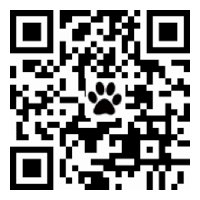http://www.banfield.com/pet-health-reso ... s-to-death
Dog and cat owners love their pets, but many show their affection with extra food and treats. Obesity is one of the most common, preventable diseases among pets. Owners not only fail to prevent this disease, but often cause it by “spoiling” their pets.
Six out of 10 Pets are Overweight
A recent study confirmed, 6 out of 10 pets are overweight, and half of those have a body condition score (BCS) greater than 6. The ideal BCS is 4.5 for a dog and 5.0 for a cat. 12 percent of overweight pets have weight-related health conditions. These conditions include arthritis, diabetes, skin fold infections, anal sac impactions, heart disease. Partly due to their anatomical predispositions, short-nosed breeds like bulldogs and pugs can also develop breathing conditions.
There isn’t a social stigma attached to obesity in pets, and they will eat purely for enjoyment if given free reign over their food. Cats and Dogs do not have the conscious thought to realize health risks associated with obesity. Owners need to take on that responsibility for them.
A fat pet is not “cute” or ok; obesity is a serious health risk associated with other conditions that significantly decrease a pet’s quality of life. The best way to prevent or treat your pet’s obesity is to feed appropriate portions of a high-quality, complete and balanced pet food.
Common Misconceptions and Myths
Myth: I can leave food out all the time. My pet will only eat as much as he or she needs.
Fact: While some pets will self-regulate how much they eat, most pets will overeat if an owner keeps their food bowl full. You should measure your pet’s daily food. Your veterinarian can help determine the appropriate amount to feed your pet to maintain a healthy weight.
Myth: Steak, cheese and other foods are fine for me, so they must be fine to feed my pet.
Fact: Excessive amounts of fat and calories in human foods will lead to obesity in pets.
Myth: Pet food packaging gives accurate portions on the label. If I just follow those, my pet will be a good weight.
Fact: The portions indicated on pet nutrition labels are based on an average pet. Individual pet needs may vary by as much as 25%. The portions indicated on labels are based on the number of 8-ounce cups to be fed. Don’t make the mistake of using a coffee can as a “cup” for measurement. It is best to consult a veterinarian at a Banfield Pet Hospital regarding the appropriate brand and amount to feed your pet.
-
- Advertisement
Do you Overfeeding your dog or cat?
1 篇帖子
• 分页: 1 / 1
1 篇帖子
• 分页: 1 / 1
在线用户
正在浏览此论坛的用户:没有注册用户 和 1 位游客


